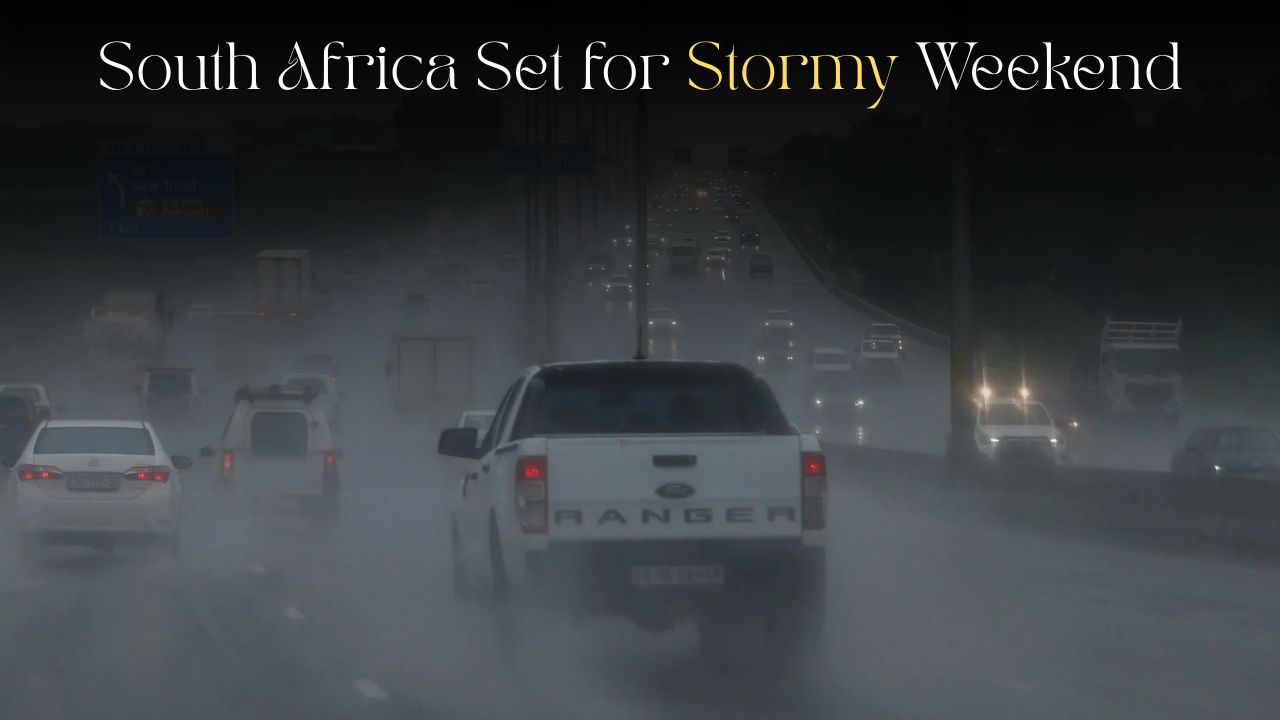
South Africa is bracing for a significant shift in weather conditions this weekend as a powerful cold front is set to sweep across the country. The South African Weather Service has issued alerts warning of heavy rainfall, plummeting temperatures, and strong winds in multiple provinces. This system is expected to hit the Western Cape first before moving inland towards Gauteng, the Free State, and KwaZulu-Natal. Residents are advised to prepare for possible disruptions due to flooding, reduced visibility on roads, and potential infrastructure damage. Emergency services are on high alert, especially in low-lying and coastal areas where the risk of flash floods is highest. Authorities are urging people to stay indoors during peak storm periods, secure outdoor items, and keep updated through official weather channels. The anticipated drop in temperature will also bring a significant chill, with some areas possibly experiencing snowfall in higher elevations. This weekend’s weather could mark one of the most severe cold snaps of the season.
Impact on Western and Southern Regions
The Western Cape and parts of the Southern Cape are expected to experience the brunt of the cold front’s arrival. Starting Friday evening and continuing through the weekend, these areas will see persistent rainfall that could lead to localized flooding, especially in low-lying and urban regions. The storm system is expected to bring between 40 to 60 millimeters of rain in some parts, with mountain regions receiving even higher totals. Strong winds accompanying the rain may also cause damage to infrastructure, especially in coastal towns. Marine conditions are forecast to be particularly dangerous, with rough seas and wave heights exceeding four meters in some areas. The South African Weather Service has urged fishermen and those involved in coastal activities to exercise extreme caution or avoid going out altogether. Emergency response units have been put on standby in the event of flooding or other weather-related incidents. As this region often bears the initial force of winter fronts, preparedness is key to minimizing the impact of this severe system.

Conditions Moving Inland
As the cold front progresses inland, central and eastern provinces such as the Free State, Gauteng, and KwaZulu-Natal will start experiencing the effects from late Saturday into Sunday. These regions can expect widespread rain showers, thunderstorms, and a sharp drop in temperature. Urban areas may face traffic disruptions due to waterlogged roads and reduced visibility, while rural regions are at risk for flash flooding and potential crop damage. In Gauteng, the combination of heavy rain and strong winds could pose a danger to infrastructure and power lines. KwaZulu-Natal, which has a history of severe weather impacts, is preparing for possible landslides in hilly terrain and swollen rivers. The cold front’s intensity is expected to lessen slightly as it moves further north, but its wide-reaching effects will still be felt. Local municipalities are working in coordination with the National Disaster Management Centre to ensure resources and emergency plans are in place. Residents are encouraged to monitor local advisories closely and remain indoors wherever possible.
Travel and Transportation Disruptions
The weekend weather system is likely to bring widespread travel disruptions across much of South Africa. With rainfall expected to significantly reduce visibility on highways and urban roads, motorists are advised to drive cautiously and avoid unnecessary travel during peak storm periods. Public transportation services may also be affected, particularly in flood-prone areas where bus and rail services could be delayed or suspended. Airports in Cape Town, Durban, and Johannesburg are monitoring the situation closely, and flight delays are a possibility depending on the severity of wind and rain. The Department of Transport has issued notices urging transport operators to review safety protocols and communicate clearly with passengers about any changes. Road maintenance crews will be on standby to manage waterlogged routes and clear debris. Travelers should keep emergency kits in their vehicles, including blankets, water, and a flashlight, in case of unexpected stops or road closures. Staying informed through official weather and traffic channels is essential during this period of heightened risk.

Precautionary Measures and Safety Tips
In light of the upcoming severe weather, residents across the country are being urged to take precautionary measures to ensure their safety and minimize damage. First and foremost, it’s important to secure outdoor items such as garden furniture, tarpaulins, and loose structures that could be blown away or cause injury during high winds. Homeowners should check for leaks and ensure that gutters and drainage systems are clear to prevent water buildup. For those living in areas prone to flooding, it’s advised to move valuable items to higher ground and keep sandbags ready if available. Power outages may occur, so charging devices and having backup batteries is wise. Emergency kits should be prepared with essentials like non-perishable food, bottled water, first aid supplies, and important documents. Parents should keep children indoors, and pet owners should provide shelter for animals. Staying connected to local emergency services, community updates, and weather alerts is critical for making timely decisions as the storm unfolds.






